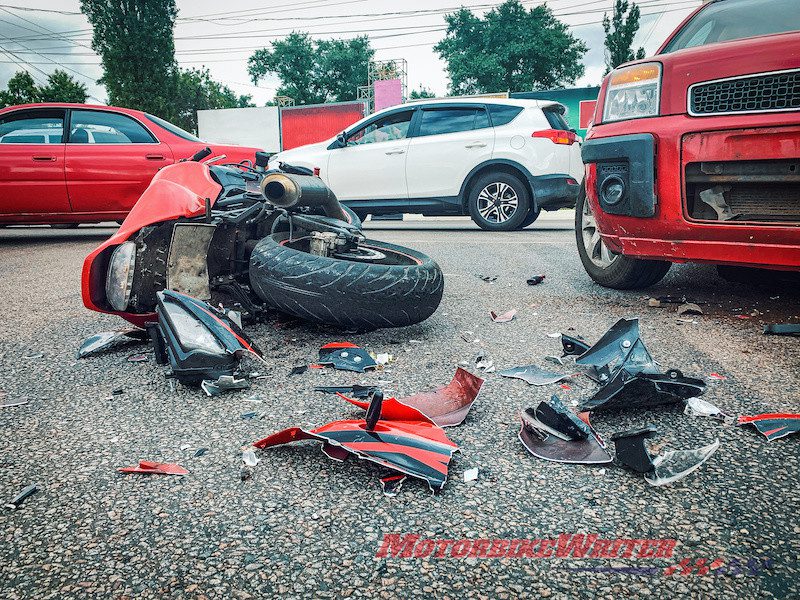We hardly need research to tell us that weekends are the most dangerous time on Aussie roads — or any country for that matter — especially for motorcycles.
After all, more motorcycles are out on thew roads on weekends, for a start.
I’ve been reporting on crash statistics for several decades and the one constant is that the most dangerous times to be on the roads are from Friday afternoon until Sunday evening.
People have switched off from work and are using the roads for reaction and travelling greater distances, so there is more likelihood of a. crash.
There is also a greater abuse of alcohol and drugs in these times, according to Professor Max Cameron from Monash University’s Accident Research Centre.
So we don’t really need yet another survey to prove this theory of dangerous motoring times.
However, new data from Compare the Market not only confirms Saturdays as having the highest rates of car crashes resulting in deaths, but also shows some other interesting results.
For example, the most deadly season is Spring!
Yes, when then flowers start coming out and horse blow out birthday candles, it is more dangerous to be on the road.
August, November and the first month of summer, December, are the most lethal, according to the review of data from 1989 to 2021.
Centre for Accident Research and Road Safety – Queensland (CARRS-Q)’s Professor Teresa Senserrick says these spikes in road deaths match with school holidays.
“This is why there is justification for double demerit points during those periods,” she says, even though Queensland is one state that does not have double demerit points.
Professor Cameron says a key characteristic of fatal accidents in holidays is that they usually involve higher speeds, which are more common in rural areas.

Also, the inferior quality of rural roads can be a contributing factor and deaths as a result of accidents can be higher because of the time it takes for emergency services to arrive on the scene.
Another interesting result is the effect of weather on crashes.
The Australian Bureau of Meteorology notes that the northern and eastern coasts receive more rainy days from November to March, while the southern states see more wet weather in the winter months.
“In some parts, rain is quite torrential, but when the rain first starts in Australia’s southern states, the roads often have a lot of dust on them,” Professor Cameron says.
“Rain turns that dust to mud, which is very slippery. Heavy torrential rain quickly clears the mud away.
“Motorcyclists, cyclists and pedestrians don’t tend to be on the roads during heavy rain so much, so there are fewer fatal crashes for these groups of road users, who are at a higher risk of dying in a crash compared to vehicle occupants.”
There has been a downward trend in all road fatalities over the past decade, including motorcycle fatalities.
On average, motorcycle fatalities account for approximately 17% of road fatalities during this period.
Motorcycle fatalities only accounted for 15.82% of all road casualties in 2011, while, at its peak, motorcycle casualties accounted for 19.27% of all deaths in 2016.
|
Year |
Motorcycle fatalities |
Australia wide (includes driver, passenger, pedestrian, motorcyclist, pedal cyclist and unknown) |
|
2010 |
224 |
1353 |
|
2011 |
202 |
1277 |
|
2012 |
223 |
1300 |
|
2013 |
213 |
1187 |
|
2014 |
191 |
1151 |
|
2015 |
203 |
1204 |
|
2016 |
249 |
1292 |
|
2017 |
211 |
1221 |
|
2018 |
191 |
1135 |
|
2019 |
211 |
1195 |
|
2020 |
188 |
1095 |
Source: National Road Safety Strategy, Road deaths by road user, [Accessed: 21 February 2022]
So how does Australia stack up against others? Overall, Australia has a lower rate of road fatalities per 100,000 compared with countries like New Zealand, USA, UK, Italy, France, Germany, Norway, Canada and Ireland.
Most countries have seen a year-on-year decrease for their annual road casualties, with Norway having the smallest number of casualties (just under 1 person per 100,000 people).



